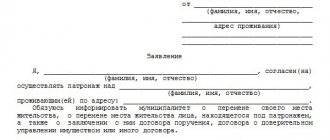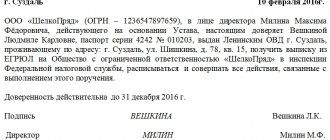The development of modern medicine has led to a significant increase in human life expectancy. If at the beginning of the last century people, on average, lived no more than 50-60 years, today, and especially in developed countries, they can live much longer.
However, in old age, a person is faced with many diseases and conditions that significantly reduce the quality of life. Moreover, some of them have such a negative impact on health and the ability to socialize and live in society that a citizen is simply not able to fully serve himself, fully enjoy his rights and fulfill the corresponding responsibilities.
In this case, the law provides for the possibility of obtaining guardianship over an elderly person. What it is, what rights and responsibilities it entails and how it is formalized will be discussed further in the article.
Who is under guardianship?
The legal basis for establishing guardianship over older citizens is generally contained in the Civil Code of the Russian Federation. In particular, we are talking about Chapter 3 of this document. More specific rules are contained in the Federal Law “On Guardianship and Trusteeship” dated April 24, 2008 No. 48-FZ.
So, in accordance with the law, guardianship is issued over an elderly citizen if he:
- has significant mental disorders;
- has illnesses due to which he requires assistance from third parties on an ongoing basis.
In any of the presented cases, the basis for establishing guardianship is the fact that the citizen is not able to fully manage his rights and bear the corresponding responsibilities.
Important! If the grounds for guardianship for one reason or another disappear, then it is terminated in accordance with the procedure established by law.
Legislative aspects
Guardianship of an elderly person over 80 years of age is a way of providing assistance to an elderly person who has lost the ability to independently perform everyday manipulations and take care of himself.
Guardianship is formalized and includes:
- supervision,
- providing assistance with daily activities,
- representation of legitimate interests.
To obtain guardianship, a potential applicant for status will need to go through the procedure established by current legislation.
After completing the actions, the person will acquire rights and responsibilities in relation to the ward.
To know all the aspects involved in guardianship of an elderly person after 80 years of age, you need to refer to the current legislation.
A person applying for guardianship status must study:
- Civil Code of the Russian Federation and Investigative Committee of the Russian Federation,
- articles and the Civil Code of the Russian Federation, which provide the concept of guardianship and disclose the legal status of the guardian,
- Federal Law No. 48, which describes the procedure for registering guardianship.
If representatives of the relevant government agency determine that the elderly person cannot cope with daily activities on his own, a guardian will be appointed within 30 days.
Important: guardianship of an elderly person over 80 years of age is voluntary. A citizen cannot be involved in caring for a relative in need of help against his will. However, if a person refuses guardianship or for some reason was deprived of his rights, he will not be able to again receive the opportunity to take care of an elderly relative.
The main responsibility of a guardian is to protect the legal rights and interests of the ward.
Action can only be carried out in accordance with the procedure established by law.
So, there are a number of actions that the guardian cannot perform. These include:
- enter into transactions on behalf of the ward, the parties to which are the guardian himself and the ward,
- spend money that belongs to the ward on himself,
- sell, lease or temporarily use the property of the ward without the consent of the relevant government body,
- make decisions that will lead to negative changes in your financial situation.
Guardianship of an elderly person over 80 years of age can be paid or gratuitous.
In most cases, there is no payment for the care and representation of the interests of an elderly person, but in some cases an agreement may be concluded that involves the transfer of funds for guardianship.
In order to receive money for performing duties, you must indicate this desire when drawing up an application sent to the appropriate government agency.
Guardianship of an elderly person over 80 years of age can only be granted if the applicant meets all the requirements.
If a discrepancy is identified during the examination of the candidate, government agency employees will refuse to complete the registration procedure.
back to menu ↑
Types of guardianship
For elderly citizens, the legislator has established two possible forms of guardianship. Let's look at them in more detail.
Full custody
This type of patronage is established, as a rule, over citizens who have completely or largely lost the opportunity to exercise their rights and perform corresponding responsibilities. In addition, such citizens may also lose completely or partially the ability to self-care.
Full guardianship for older citizens is established over:
- persons who, in accordance with the conclusion of a medical institution, require full and constant care;
- disabled people of group I;
- citizens who are over 80 years of age.
Patronage
Full guardianship is established over persons who, due to their state of health, are incapacitated or partially capable, and implies a wide range of powers of the guardian.
Patronage is issued over a citizen who is not able to fully use his rights and fulfill his duties , but who is fully capable.
The list of powers of the assistant is limited by the terms of the contracts concluded between him and the citizen in need of help.
Attention! In accordance with the law, patronage cannot be established over a person with mental illness, since in this case the latter’s legal capacity is in question.
Responsibilities of a Guardian
Initially, you need to understand that establishing guardianship is voluntary and is a right, not an obligation. No one has the right to force guardianship.
And the registration process itself is quite long, which requires patience and adherence to the rules.
The legislation defines the following obligations that guardians must fulfill:
- Support an elderly person over 80 years of age;
- Pay housing and utility bills for the person under guardianship;
- Caring for the elderly;
- Provide timely treatment for the patient;
- Protect the personal and property rights of the ward;
- Make decisions on behalf of the elderly regarding his life.
Who can take guardianship of an elderly person?
The law assumes that a guardian who will be entrusted with the responsibility of caring for an elderly person has certain requirements that he must meet.
Among them, the following should be highlighted:
- majority;
- no limitation of legal capacity;
- no criminal record;
- absence of mental health disorders, alcoholism, drug addiction.
In addition, the consent of the person under guardianship to the implementation of guardianship on the part of a particular citizen is largely taken into account.
The presence of a relationship between the guardian and the ward is not a mandatory requirement. At the same time, established practice shows that guardianship or patronage is arranged by close relatives of an elderly person.
It should be especially noted that employees of social protection institutions with which the elderly citizen is registered cannot be appointed guardians.
Reference! A pensioner can become a guardian if he meets the established requirements.
Conditions of registration
In addition to the established requirements, it is necessary to comply with the conditions for registering guardianship over a person after 80 years of age.
To perform the procedure, you must take into account the following rules:
- if an elderly person has mental disorders, care for him can only be formalized in the form of full guardianship,
- if the person providing household assistance to an elderly person is a representative of social protection authorities, he will not be able to formalize guardianship,
- both parties who will take part in the event must agree to the registration of guardianship,
- family relationships do not affect the possibility of obtaining guardianship,
- an agreement is concluded between the elderly citizen and the guardian,
- if an elderly person is a disabled person of the first, second or third group, but this status was obtained due to health problems not related to the psyche, care can be provided in the form of patronage.
During registration, you must fill out the full contract form.
back to menu ↑
What does guardianship provide?
Caring for older people, especially those suffering from serious mental illnesses, involves significant psycho-emotional and even physical stress, which requires special personality traits and sufficient free time.
In this regard, persons who are guardians of an elderly citizen may apply for benefits.
The guardian receives the right to manage the funds of the person under his guardianship, including a pension . However, it should be remembered that it should only be carried out in the interests of the senior citizen. If there is abuse of this right, the guardianship authorities may terminate the powers of the guardian.
Also, the period of care may be included in the citizen’s insurance period. In addition, during this period he is awarded 1.8 pension points, from which the guardian’s future pension is formed.
Many citizens are interested in the issue of the possibility of inheriting the property of a ward. It should be noted here that there is no legal connection between the fact of guardianship and the right to inheritance. In other words, a guardian can rely on the property of the person under his guardianship after the death of the latter only in cases where he has such a right in accordance with the law or if the elderly citizen draws up a will for him.
Amount of payments to the guardian for care
In 2021, the amount of payment for care to a guardian is 1,200 rubles per month. However, it should be borne in mind that compensation, as well as insurance experience, is accrued only to officially unemployed citizens.
How to obtain guardianship
The specifics of the procedure for registering guardianship over a citizen vary depending on the region, as they are reflected in the legislation of the constituent entities of the Russian Federation.
However, there are still stages common to all; we list them:
- filing an application by an elderly person with a request for the appointment of guardianship or patronage;
- submission of an application to the guardianship authorities by a person wishing to become a guardian, attaching documents confirming his right to do so, including certificates of no criminal record, drug or alcohol addiction, and so on;
- development of a draft agreement between the guardian and the ward;
- waiting for the decision of the guardianship authority, which is usually about 1 month;
- obtaining a guardianship order;
- conclusion of an agreement between the guardian and the ward.
How can a pensioner turn 80 apply for guardianship?
Before arranging guardianship for a person of retirement age, it is recommended that you familiarize yourself with the legislative part of this issue, as well as adequately assess your capabilities.
Each candidate must meet a certain list of requirements that are established in federal regulations.
Relationship is not a determining factor in the appointment of guardianship. Complete strangers can also receive this status if they wish.
The main features of guardianship for elderly people over 80 years of age are given below:
- The guardian may be officially unemployed in order to devote full time to the ward. However, the caregiver must be of working age;
- The full period of caring for the elderly is recorded in the official work experience;
- If the guardian is not employed, then he receives payments from the Social Insurance Fund for caring for the elderly.
Can guardianship be revoked?
Guardianship may be revoked for the following reasons:
- actual cessation of care for an elderly citizen;
- death of a guardian or ward;
- placement of an elderly person in a social service institution;
- abuse of rights and failure to fulfill obligations by the guardian;
- commission by a guardian of an intentional crime against the ward.
Important! The decision to cancel it is made by the relevant government agency.
Guardianship of elderly citizens over 80 years of age is a common form of social assistance for disabled citizens with limited capacity and self-care. A person wishing to become a guardian submits a corresponding application. If he has no restrictions established by law for caring for an elderly person, then guardianship is formalized within a month after submitting the documents.
Documents required to establish guardianship
An elderly person is required to submit a statement where he agrees that a certain citizen will look after him.
Additionally, you may need a medical report or a document establishing disability. A citizen who is going to care for a pensioner needs to prepare the following:
- passport;
- employment history;
- a certificate from the central labor office confirming non-receipt of unemployment benefits;
- paper from the Pension Fund about the absence of pension payments.
If the care is provided by a minor, you will need a certificate stating that he is studying full-time, as well as the consent of the parents and guardianship authorities.
List of documents
Each candidate for guardianship will need to fill out an application in a certain form - download link.
Then submit it to the local Department of Social Protection of the Population with the following list of papers:
- Applicant's passport (original and photocopy);
- Bilateral agreement;
- Certificates about the health status of each of the parties to the agreement (guardian and ward);
- A written description from the place of employment of the candidate for guardianship;
- Work book (original and photocopy);
- An extract from the house register, which confirms ownership of the living space;
- Certificate of registration at the place of residence;
- Conclusion based on the results of an examination of the guardian’s place of residence (two copies).
Documents for guardianship
How to make an application?
The application form must be filled out directly by the candidate for trustee.
The following information must be included in the document:
- Full name of the guardian;
- Passport details;
- Time limits for establishing guardianship;
- Conditions of detention of the ward;
- List of attached documents.
Application for guardianship
Registration of patronage is carried out according to a similar scheme, and the existence of an agreement with the conditions for the provision of such a service is additionally prescribed.
Application for establishment of patronage
Agreement on trust management of property of a citizen under patronage
Who is not appointed as a guardian?
The Family Code in Article 146 names those who cannot be guardians:
- chronic alcoholics or drug addicts whose illness is documented by a medical institution;
- those whom the court has already removed once from performing guardianship duties;
- persons unable to perform duties due to health reasons.
This applies to cases where guardianship is assigned to adult incapacitated citizens. If the person under care is a child, the list is updated with:
- deprived of limited parental rights;
- former adoptive parents, when they became such through their own fault.
In any case, a court decision is required to enter into force.
The procedure for declaring a citizen incompetent
The following may apply to the courts in order to declare a citizen incompetent:
- close relatives, and they may not even have a joint household with the incapacitated citizen;
- guardianship management;
- institutions providing psychiatric and other medical care.
Going to court is the only way to declare a person incompetent. And the basis for such an appeal is the only expert opinion of a psychoneurological dispensary. This must be clearly understood by his relatives.
If the court makes a positive decision, within three days it brings this information to the guardianship authority, which will have to appoint a guardian over the incapacitated person. And a citizen in respect of whom such a court decision has been made, upon its entry into legal force, is considered limited in his rights.











